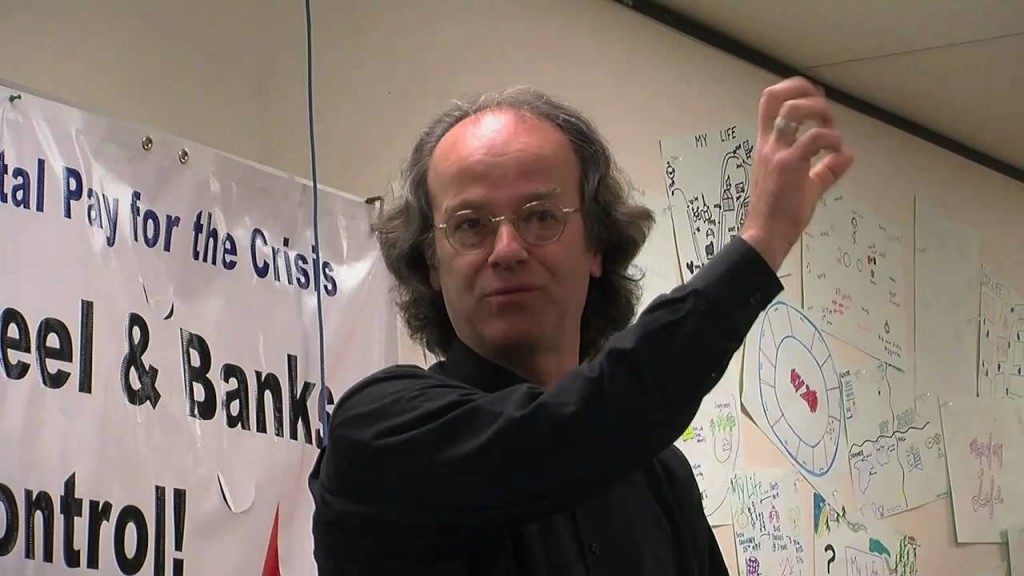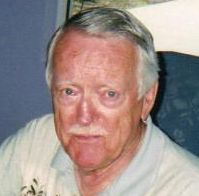What has changed in England?

rev. Kevin Annett
(Lessons from My Ancestor Peter Annett, and Stanstead Prison)
William Annett Global News Centre
(DAYTONA BEACH) On December 19, 1761, author and publicist Peter Annett was arrested on a charge of blasphemy and sedition for questioning scripture and the authority of the Church through nine editions of his news sheet The Free Enquirer (Oct. 17 – Dec. 12, 1761). He was prosecuted in London by the Attorney General and sentenced by the Court of King’s Bench to imprisonment at hard labor in Newgate prison, and ordered to stand twice in the pillory, once at the Royal Exchange and once at Charing Cross, despite his advanced age.
On May 26, 2011, his descendant, author and publicist Kevin Annett, was arrested without charge and detained for a day in an immigration prison at Stanstead Airport in London. He was subsequently expelled from England after being searched, photographed and fingerprinted, despite having breached no law and committed no offense except that he publicly criticized the Church and Crown of England.
Kevin Annett will be returning to England this September.
________
The old walls that hosted his broadsheets are all gone now, as is the pillory covered with excrement that held the old man in a vise for anyone to pummel with garbage. But I felt Peter’s grim defiance the day I stood near that spot at Charing Cross where the state and the church tried to break him; and I sensed, too, the fire in him that flamed his disobedience, and still reaches out to me.
Peter Annett was unlike any of the humanist philosophers of his time, including Voltaire, for not only did he challenge fat Anglican bishops with reason and common sense, but he did so loudly and insolently, in the streets, by directly appealing to the hungry masses so feared by the British aristocracy. Peter called on the poor people of England to break their mental subservience to Crown and Pulpit, and figure everything out for themselves – a call that won him the eternal hatred of both Whitehall and Westminster.
“All doctrines founded on fear and fraud shall be confounded by the authority of truth. We will bring to light the hidden works of darkness and drive falsity to the bottomless pit.” Thus did my ancestor proclaim his devotion in print, just weeks before he was thrown into Newgate Prison where more than half of the inmates died in their chains.
The hidden works of darkness …
Three years ago, I was scheduled to speak publicly about that same darkness not a mile from where Peter Annett had lain in prison when it came to pass that I too was locked away by the fiction called the Crown of England and its very real police state. I thought a lot about Peter as I sat through a long night in a small immigration prison cell at Stanstead Airport, with the cries and wailing of the other detainees echoing all around me.
The uniformed drones of the private company, Reliance Security, which had arrested me in the name of the British Border Service Agency, had stripped me of my belongings, so I lacked pen or paper that night; but in my mind I composed a dialogue with Peter to stave off my boredom. I asked him to tell me how he had survived. And from somewhere, I heard a voice tell me,
I cannot explain how I endured, except to say that this will of mine that some call courage comes from knowing what it is, this truth that I love and these lies that I hate; and thus knowing, I am resolved that I will never silence my mind or my tongue, or allow them ever to be stilled. In the face of this government’s resolve to torture and suppress us, my own unswerving determination is called greatness by some. But in the face of such monstrous tyranny, I call it simple necessity.
In 1761, Peter Annett was denounced by the shadowy spies known as Watchmen, a private army paid by the Bishop of London: thugs and murderers who lurked in the taverns and halls where free thinkers like Peter denounced religious fraud and oppression. In 2013, London boasts a much greater throng of Watchmen in the more than four million police television cameras that record every movement of once-free citizens who are now under permanent siege by “their” government.
Months before my own arrest at Stanstead Airport, I stood outside Lambeth Palace in a peaceful demonstration against the gold-clad criminal some call Pope, when a policeman approached me and said, “Mr. Annett, we have seen you at these protests before and so we’re presenting you with this notice. It informs you that you may be detained for Fixated Threat Assessment if you attend any future events like this one.”
He meant, if you come to another protest we’ll stick you in a mental hospital and charge you with a form of mental illness called “Fixation.” And so, dissent has become not only an official crime but an act of insanity. That is the law now in England.
And yet in fact, this is not a new law, but a resurrection of a very old medieval edict that declared that any protest against the King or the Church was innately seditious and punishable without appeal. Those presumed guilty were whisked away to secret tribunals called Star Chamber courts, identical to the five Fixated Threat Assessment Centers in London where dissidents are imprisoned simply for dissenting.
The land of my ancestors has reverted to a place of fear and tyranny. And that is exactly why I am returning there this September, to speak freely and publicly as is my birthright, and to organize the victims of church and state terror.
I have been warned not to do so. But remember: the fear that the Crown and Church try to generate in us is but an enormous smokescreen to hide their own guilt and culpability in the longest reign of murder in human history. If we lose sight of this simple fact, we diminish our own capacity to overcome that legacy and stop the terror.
I love my English homeland: a place to which my French Huguenot ancestors fled from church terror in 1572 in order to establish a liberty of conscience and faith unknowable under Catholicism. The England of Common Law, of revolutionary ferment down the ages, is one of the rivers in my soul that cannot be dammed or diverted by the twin travesty of Empire and Christendom. For those evils were the acts of greedy men bent on rape and conquest, who had to crush the English commons and its people long before they inflicted the same war of terror on the indigenous nations or black African humanity.
It is to that other England of the Commons that I turn when I get up to speak about the genocide of aboriginals, and the trafficking in children by British elites and Catholic Bishops. Like Peter Annett, I look to the sleeping mass of people for our ultimate answer to these crimes. For as another persecuted rebel, Percy Shelley, cried out after the Peterloo Massacre of working people in Manchester in 1817,
Rise like lions after slumber, in unvanquishable number;
Shake your chains to earth like dew, which in sleep had fallen on you:
Ye are many – they are few.
Peter Annett knew all about the “99 percent” long before the modern movement of that name, for it was to them, the dormant giant called the people, to whom he appealed to his last breath. And he knew that the spark that might awaken them can only be lit by a personal example, by continual public action in the face of one’s enemy, in which personal courage and integrity finds a broader stream in which to navigate, and where we encounter other solitary, struggling souls.
I have learned the same hard-won lesson over the years, and if anything the recent persecution has sharpened and quickened the learning for me and growing numbers of others. So I don’t fear the path ahead. Instead, as we descend ever more quickly into a new social and political ice age, what is vital is that we search again for the vision of the world as it is, under the Natural Law where all things are in common, and no-one is above another – and restore that world while we still can.
From English soil arose one soul who for me embodies this vision with the same direct courage, as did my ancestor Peter: a poor man from Wigan named Gerrard Winstanley. During the English Civil War that put an end to papal and royal oppressors, Winstanley and a hundred other men and women established the Diggers movement of 1649 that claimed all land as common. And just outside of London, they began to till the earth as a free and radical “community in resistance.”
Like all just souls, they were crushed by the weapons and hired thugs of the wealthy. But in his appeal to other poor people, Winstanley’s words are an answer to the British police state of 2014, and the decaying social order that has spawned it:
The Creator Reason made the Earth a common treasury for all creatures, and not one word was spoken then, that one branch of mankind should rule over another. And the reason is this, that every man and woman is a perfect creature of himself, and the same spirit dwells in each one equal, making none less or greater than another …
And yet selfish imagination did set up one man to teach and rule over another, depriving him of the earth’s fruits, and thereby killing the spirit by placing one into bondage, and another set on high. And thereupon the earth that is one garden is now hedged into enclosures and property, and this creation given to all as a common storehouse is bought and sold, and placed in the hands of a few, dishonoring the Creator, as if he delighted in the comforts of some and rejoicing in the misery and poverty of others …
But when once again this fallen state is abolished and all land is returned to its natural state as a common possession, and men become as they were born, free and equal, then this war of all against all will cease, and warfare and misery will end, for none will own while others languish with nothing.
Echoing Jesus himself, who saw that only when the last became first, and the first last, would justice come to mankind, Winstanley envisioned an England that must come to be if the crimes born of greed and conquest are ever to be undone – and if the police state set up to protect the wealth and power of the few is to be disestablished in favor of a Republic of Equals.
I guess that’s what pillory and prison are really all about, in a place like England: a way to hold back the future. It’s why we aren’t allowed to think freely, or protest a child rapist in Rome, or demonstrate in public more than once without being called crazy. For one day, the illusion churned up by religion, politicians and “crowned heads” may shimmer and fade, and the land and life stolen from us by a few will be seen for what it truly is: limitless, inalienable, and undivided.
Nothing has really changed since 1761, or 1649, in the land called England. Freedom is still subversion, and free souls must learn to be forever bold as well as wise. But everything can and will change, in the twinkling of an eye, for that’s the way revolutions are made manifest in history - like a stealthy mole that pokes up unexpectedly, to quote good old Marx.
Just shortly before Peter Annett died alone and in poverty in 1769, one of his neighbors wrote about him, “He emerged from prison broken in body and in health, but still sharp and alive in his spirit, his mind as lucid as ever. He seemed to me like a man fulfilled.”
It has been my privilege to understand why.
________________________________________________________

Bill Annett grew up a writing brat; his father, Ross Annett, at a time when Scott Fitzgerald and P.G. Wodehouse were regular contributors, wrote the longest series of short stories in the Saturday Evening Post’s history, with the sole exception of the unsinkable Tugboat Annie.
At 18, Bill’s first short story was included in the anthology “Canadian Short Stories.” Alarmed, his father enrolled Bill in law school in Manitoba to ensure his going straight. For a time, it worked, although Bill did an arabesque into an English major, followed, logically, by corporation finance, investment banking and business administration at NYU and the Wharton School. He added G.I. education in the Army’s CID at Fort Dix, New Jersey during the Korean altercation.
He also contributed to The American Banker and Venture in New York, INC. in Boston, the International Mining Journal in London, Hong Kong Business, Financial Times and Financial Post in Toronto.
Bill has written six books, including a page-turner on mutual funds, a send-up on the securities industry, three corporate histories and a novel, the latter no doubt inspired by his current occupation in Daytona Beach as a law-abiding beach comber.
You can write to Bill Annett at this address: [email protected]


















 London
London
 Oregon
Oregon





Leave a Reply
You must be logged in to post a comment.